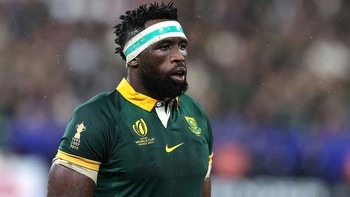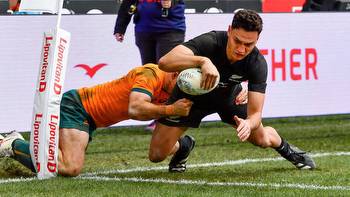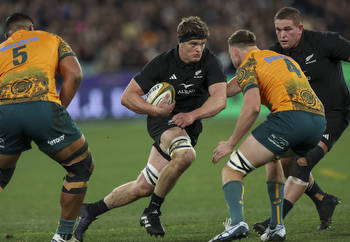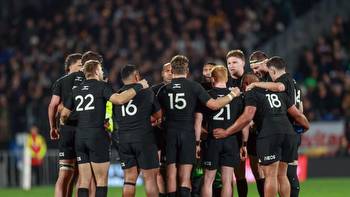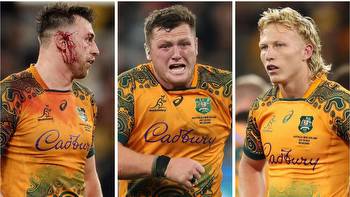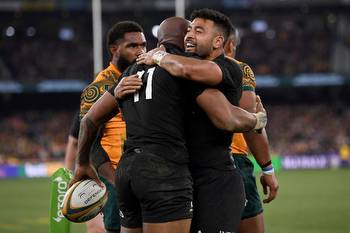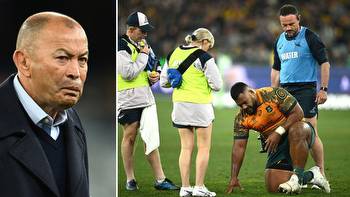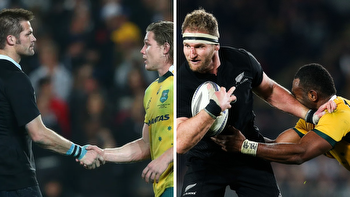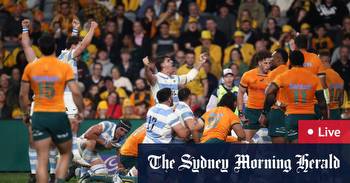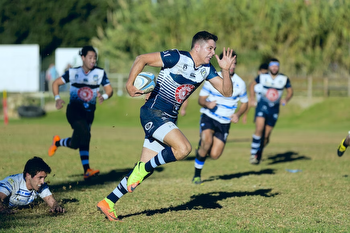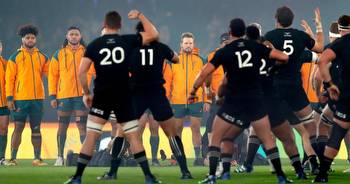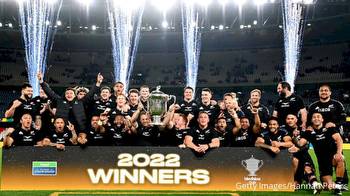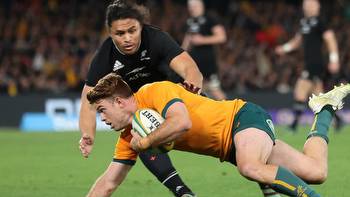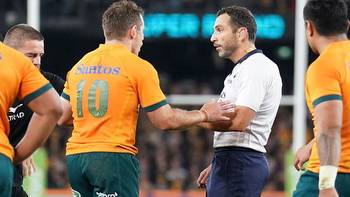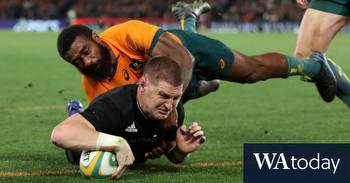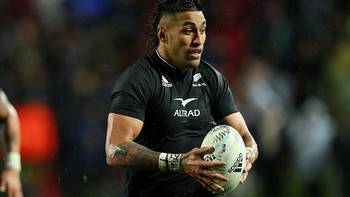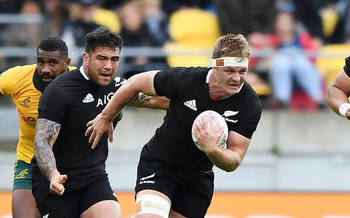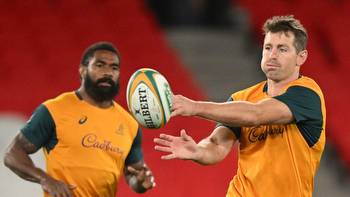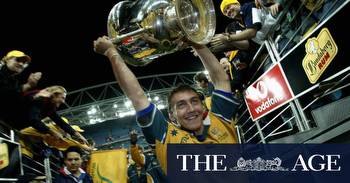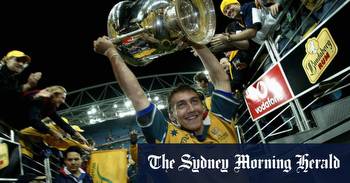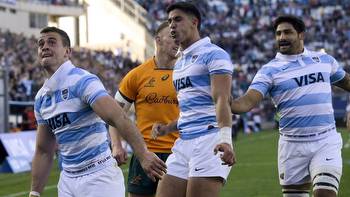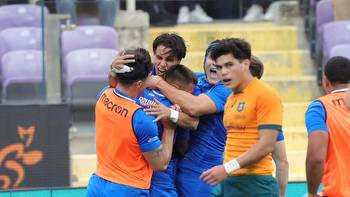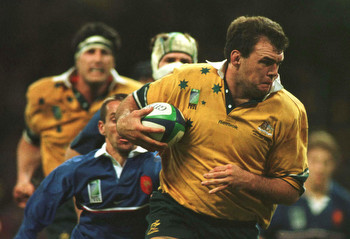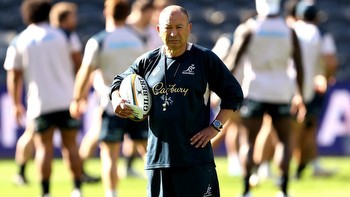All Blacks v Australia: Ranking the top 10 best Bledisloe Cup clashes
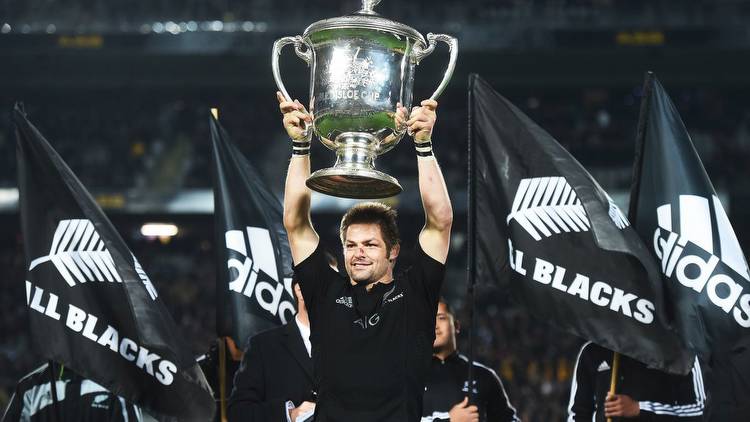
The definitive list of the top 10 Bledisloe Cup encounters between the All Blacks and the Wallabies. The big mug may have been in New Zealand’s hands for the past 20 years but it doesn’tmean there hasn’t been some magical moments along the way.
The series had been decided by the time of the third test, the All Blacks having nailed wins in Wellington and Christchurch. In addition, Wallaby coach Daryl Haberecht had suffered a heart attack at Whanganui days earlier and gifted back Paul McLean was out of the tour with a knee injury. No chance Australia, then. Clean sweep beckoning. Instead Australia played as if inspired, and it was their bushranger No 8 Greg Cornelsen who stole the show.
The Queensland superannuation consultant became the first Australian to score four tries in a test and remains the only player to have scored four against the All Blacks. The Wallabies’ 30 points were a record against them to that point. Australia scored five tries to two, the other by Cornelsen’s flank partner Gary Pearse.
Afterwards the magnanimous Cornelsen acknowledged it could just as easily have been Pearse, who also had a fine test, who’d got the four. Curiously in a 25-test career they were Cornelsen’s only tries. “Who was the bloke who scored the other try?” Pearse has said. “Everyone says who cares? I do, because I got it.”
There have been finer tests between the transtasman rivals but this will always be remembered for The Tackle. Australia, four points up with seconds remaining, were trying to withstand a final onslaught when Jeff Wilson, already the golden boy of New Zealand sport, skipped inside and outside three despairing Wallaby tacklers and sprinted towards the righthand corner. He dived for the line as he was hit by Australian halfback George Gregan, four tests into a terrific career. The tackle dislodged the ball in mid-dive, and ensured the win for Australia.
“I was just covering. I was doing what any other halfback does. I was just lucky to make that tackle. You try and make that tackle another 100 times you’d never make it,” Gregan modestly said.
A week earlier, the Springboks had been dusted 52-16 in Pretoria, so there were long odds on another half ton, given the travel involved and the sheer difficulty of backing up to the same degree.
The backdrop was intriguing. The Wallabies talked publicly of avenging their netball players’ world championship final loss to the Silver Ferns a few days earlier. On the other side, there was a grumbling dispute with New Zealand Rugby Union officials over the size of any World Cup bonus. Whatever, the All Blacks belted the Wallabies, scoring seven tries – all by the backs, with three to Joe Rokocoko. It has since been surpassed as the highest score the All Blacks have posted against the Aussies (2021′s 57-22 now the leader).
The result was tipped as a World Cup harbinger for later that year, which just goes to show the dangers of fancy speculation. The teams met on the same ground in the semifinals almost four months later. The outcome was rather different.
The All Blacks won the first test 12-6 at Lancaster Park meaning they could get their hands back on the Bledisloe with a win in Sydney, following the heartbreak of the year before.
Leading 11-8 with 19 minutes gone, Mehrtens lined up a penalty from inside halfway when two streakers ran on with Vodafone labels across their bodies. The penalty attempt was then pushed to the right. He did make a much easier kick two minutes later though to make it 14-8.
The Wallabies went on attack and the All Blacks held them on their line for 15 phases until Mat Rogers dived over with eight minutes to play but Matt Burke hit the post with his conversion to leave it 14-13. The All Blacks continued to defend in their own 20 for the rest of the game but referee Andre Watson pinged Reuben Thorne for hands in the ruck as the hooter sounded a few seconds later. Burke lined up the kick, in shades of John Eales, from a spot Burke had missed five straight kicks from at training the day before. He slotted this one though and the Bledisloe Cup remained in Australia.
The Bledisloe Cup was firmly in Australia’s hands after a victory at Carisbrook a few weeks earlier but the Tri-Nations was still on the line. It was a year after Jonah Lomu famously sunk the Wallabies in a thriller, this time they got their revenge in a farewell test for John Eales.
Chris Latham soared above Lomu to collect a bomb and a first-half try as the Wallabies went out to a 19-6 lead at the break. The All Blacks responded with tries to Doug Howlett and Pita Alatini, along with an Andrew Mehrtens penalty to jump out to a 26-19 lead. Australia cut the lead to four and Eales repeatedly turned down shots at goal in the final 10 minutes before Toutai Kefu barged over for the match-winner.
After a back-and-forth test it appeared the defining moment came when Richie McCaw was penalised – yes it did happen once – with five minutes left. Nic White kicked it to put the Wallabies out to a 28-22 lead.
The Wallabies had the ball on halfway with two minutes to play before a young Sam Cane earned a turnover penalty, however Colin Slade’s kick for the sideline failed to make touch and it appeared New Zealand’s last chance was gone. But the All Blacks won possession back and found an overlap out wide with Malakai Fekitoa darting through a gap, diving over just as the clock ticked over to 80 minutes. Ten metres in from touch, Slade landed the conversion to win it.
During the post-match press conference, Wallabies head coach Ewen McKenzie announced his resignation.
It was a foul day, the prospect was for a grim battle of attrition in the opening game in Tri-Nations history. Instead the 40,000 got what many wise heads reckoned might have been as close to that unattainable concept, perfection, from the All Blacks. They sparkled in the sleet.
One memory remains fixed in the mind. Jonah Lomu and an Australian player closed in on a loose ball in mid-field, grubber kicked through by Andrew Mehrtens. It was a 50-50 contest. Lomu made it a no contest, wrenched the ball away, got to his feet and although seemingly wrapped up, flipped a pass to Justin Marshall who sprinted 45m to the corner for one of six tries.
Running rugby in the rain, barely an error. It was the first bonus point awarded in international rugby. If it wasn’t perfection it was damn close.
The Wallabies as huge underdogs jumped out to a 17-0 lead after three tries in the opening 14 minutes, including Israel Folau crossing over in the first minute. Rieko Ioane finally got the All Blacks on the board midway through the halfway before Aaron Smith scored just before halftime to make it 17-14.
The All Blacks seemed to take control of the match, when they finally grabbed the lead in the 60th minute but the final 15 minutes of the test went crazy. The lead changed hands three times as a Bernard Foley conversion put Australia up 29-28 with four minutes to play. Then some slick passing set up Beauden Barrett for the match-winner in the dying stages.
Another heartbreaker for All Blacks fans, and this time the hurt came from nobody. Wallaby captain John Eales didn’t particularly appreciate his nickname – Nobody, as in nobody’s perfect – but he was among the great modern forwards. Not only a top-class lock and an outstanding athlete, he could kick goals. His most celebrated kick with the final kick of the game, the first to be played at the new stadium.
The All Blacks were 23-21 up and pressing when Stephen Larkham cleared the ball into touch into the All Blacks’ half. Australia won the lineout, and from the ensuing ruck a penalty. Eales looked about for the regular goalkicker Stirling Mortlock. “Jeremy Paul said ‘Mate, Stirling’s off. It’s your kick’,” Eales recalled. So he looked again at the posts, planted the ball, strode in and from 25m struck it between the posts before raising his arms and being engulfed by teammates. “I kicked 100 of those as a kid in the back yard trying to win a test for Australia,” Eales quipped.
A fabulous contest two months before the Sydney Olympics and a smidgeon under 110,000 were squashed into the Olympic Stadium at Homebush. The All Blacks were running away with it, 24-0 up in eight minutes. By halftime it was 24-all in a pendulum contest which was defying belief.
When New Zealand-born hooker Jeremy Paul scored for the Wallabies six minutes from the end, to make it 35-34, the die seemed cast. But it had not been a normal night. Time was up when Taine Randell flung a pass left to Lomu. He shrugged off Stephen Larkham 20m out and tip-toed down the line to score the 10th and final try of a staggering night. Many of those who saw it wondered if they had indeed seen the most exhilarating contest of all.

